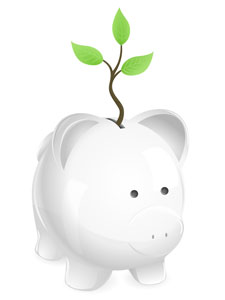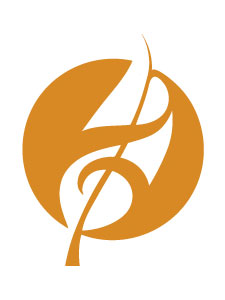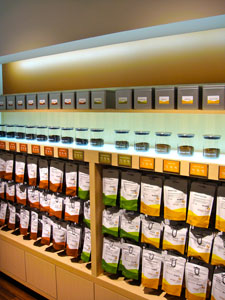Profitability strategies Part 1: Package size




Profitability is the cornerstone measurement of success in business. Profits allow us to open stores, hire employees, buy product, support our families, and help those less fortunate. Profits, at their most basic level, are a sign that we are successfully serving our customers. Profits mean the customer is happy to give us more money than we invested (including the value of our effort) into producing our product or service.
My objective with Adagio is to create and mix of product and experience that is so engaging, so compelling, and so valuable to the customer that they will not only pay for it, but also LOVE Adagio for selling it to them. Apple captures this concept perfectly. The company charges so much for their product that they have better than 40% gross margins. Dell, in comparison, makes less than 20% margins. And yet Apple has a cult following of rabidly loyal fans and customers.
So how can I make Adagio's mark as ubiquitous and respected in tea as the Apple mark is in consumer electronics? That's going to require a ton of hard work and a string of near-perfect strategic decisions. In Measuring profitability in a tea store I described the financial metrics that we are pursuing to reach profitability and allow us to keep delivering unparalleled customer experiences. I don't know the exact recipe for developing our cult following yet, but I do know some of the ingredients that will help us make incremental improvements to our profitability.
Over the coming weeks and months my focus will be on:
1. Package size
2. Pricing
3. Sales strategies
4. Merchandising display strategies
5. In-store marketing and signage
In Part 1 of this series I'll cover our planned changes to package size. I'll cover the other strategies in future articles.
As I described in The Long Bet: investing in the customer base, we are selling a TON of $2 sample packages (50% of all packaged tea sales, to be exact). Our customer counts are fantastic, but our average order size is a good bit smaller than I expected. For our service strategy (creating a rich, engaging experience) to be profitable, we need customers who spend time cupping teas with us to purchase enough product to cover the labor costs of the experience.
We're not having any trouble attracting customers, delighting them, and getting them to buy. We are suffering from the fact that most customers are buying 0.4 ounce to 0.8 ounce sample pouches. I'm not aware of any other tea retailer offering this small of a packaged size. I'm also pretty sure that most customers don't realize that these pouches only contain enough tea for 3-6 servings in a typical mug.
The samples are an intensely popular option online, where customers are hesitant to commit to 3 ounces of a tea that they've never tasted or even smelled. In our stores, we give customers the opportunity to smell AND TASTE any tea in our collection free of charge. We'll gladly help them comparison-cup quite a few different teas in search of something they love. There is no reason any customer should end up with a tea they don't like. As such, there is much less reason to offer such a small package size.
Based on this logic we've made the decision to discontinue the sample package size in-store, and replace it with a range of 24 different Sampler Sets that each include four different samples of our most popular teas. Instead of purchasing a sample of Raspberry black tea for $2, the customer can either purchase a 3 oz pouch for $5, a pouch of 15 pyramid full-leaf tea bags for $6, or our Berries Sampler Set for $7 (includes Forest Berries, Raspberry, Strawberry and Blueberry black teas).
There may be a little customer frustration at first, since they've gotten used to being able to purchase a $2 size. That said, NO ONE else offers a size this small, and in the long run we'll avoid customer frustration over finding that the sample pouch includes so little tea.
My hope is that increasing the minimum purchase from $2 to $5 we'll increase the average order size and our sales overall. In Part 2 I'll cover Adagio's price point and how this relates to profitability.
Adagio Teas
Twitter: @AdagioRetail
